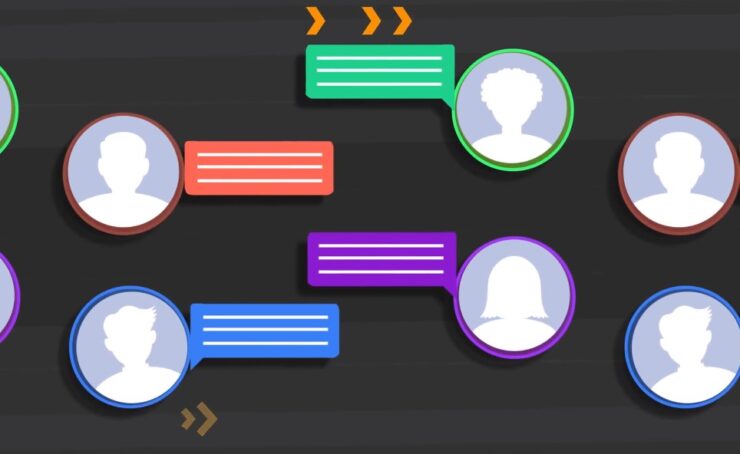It’s well understood that customers expect to have their issues resolved quickly and efficiently whenever they reach out to a company. For large corporations that receive high call volumes, call centers play an invaluable role in managing these interactions.
However, running an effective call center comes with many challenges. To meet rising customer demands in today’s highly competitive environment, many call centers are now turning to software to optimize operations and boost productivity.
The Challenges Facing Traditional Call Centers

For years, call centers have relied on manual processes to handle customer issues. Agents work off of printed scripts that lack personalization. They switch between various software programs to access necessary information. When questions arise, they put callers on hold while hunting down the answers. With no unified system, agents struggle to deliver consistent service. As a result, average handle times lengthen, customer frustration builds, and operational costs swell.
Without visibility into call center operations, managers also face difficulties. Determining coaching opportunities is guesswork without call recording and evaluation capabilities. Forecasting staffing needs is inaccurate when real-time data is inaccessible. With siloed systems, optimizing the customer experience is nearly impossible.
As customer expectations for service quality grow, traditional call center approaches can no longer suffice. Lengthy hold times, repetitive questions, and inaccurate answers all degrade the customer experience and reflect poorly on a brand. To meet rising demands, call centers need solutions to enhance productivity.
The Rise of Call Center Software

To overcome these challenges, innovative call center software has emerged to optimize operations. Leading options like Balto integrate previously disconnected systems into one unified platform by leveraging AI. With all tools and information accessible in one place, agents can deliver smooth, personalized service.
Intelligent call center software provides agents with on-screen visuals during calls to guide interactions. Relevant knowledge bases, FAQs, and training resources are readily available to resolve customer issues quickly. Customer history and profile details equip agents with key background information to personalize each experience.
With scripting and automation capabilities, the software can also handle repetitive tasks to allow agents to focus on complex issues. Chatbots act as virtual agents to resolve routine customer inquiries. The software can recognize intents and entities and automatically escalate complex calls to human agents. Intelligent routing directs callers to agents with relevant expertise to resolve problems rapidly.
For managers, call center software generates helpful insights from conversations to identify coaching opportunities. Speech recognition transcribes calls to analyze trends, while sentiment detection reveals pain points. This data powers visual performance dashboards that highlight successes and areas for improvement. Managers gain complete visibility to make data-backed decisions to refine strategies.
The Powerful Benefits Call Center Software Provides
Transitioning to intelligent call center software delivers quantifiable benefits for contact center operations and the overall customer experience. Here are some of the top 8 advantages:
Smart Assistance and Automation

Smart assistants answer repetitive inquiries on behalf of agents via chat and voice. This saves agents time which can be spent on complex issues. Intelligent process automation also takes over tedious tasks like data entry, freeing up agents.
Call Scripting and Compliance
Sophisticated call center scripting software provides agents with real-time, dynamic scripts tailored to each unique interaction. Scripts auto-populate with relevant information and change based on the intent and context of the conversation, guiding agents through compliant workflows, company protocols, and best practices on every single call.
Automatic scoring built into the platform also allows managers to closely monitor script adherence across all agents to ensure full alignment with quality and compliance standards.
Improved First Call Resolution

With all resources at their fingertips, agents can quickly find answers to customer questions without inconvenient hold times or transferring to other departments. Intelligent routing algorithms also ensure each caller is matched to the agent most qualified to resolve their specific issue right from the start.
This first-call resolution significantly reduces repetitive inquiries from customers forced to call back multiple times about the same problem, lowering customer effort.
Shorter Handle Times
Through equipping agents with valuable tools like on-screen guidance, knowledge bases, and automation, calls become dramatically more efficient. Customers spend far less time explaining issues in depth or waiting as agents search through multiple systems looking for answers. With a unified platform, agents can rapidly resolve problems the first time. This results in a significant reduction in average handle times.
Enhanced Personalization

With instant access to detailed customer data, agents have the ability to reference info like purchase history, past issues, product usage, and location to personalize each interaction. Virtual agents can also use data points like name, account details, and geo-location to engage customers in a tailored way. This personalized service makes customers feel valued as more than just another stranger calling into a call center.
Increased Cost Savings
Call center software lets businesses streamline operations and improve efficiency resulting in major reductions in operational costs. With shorter call times and first-call resolution, labor requirements are lowered substantially, allowing management to significantly decrease staffing expenditures. The higher first-contact resolution also eliminates the need for disgruntled customers to call back repeatedly, further reducing costs.
Better Customer Experiences

You get faster issue resolution, less repetition, and personalization, meaning overall customer satisfaction improves. Callers are no longer forced through convoluted menus or stuck on endless holds. Intelligent software analyzes conversations to identify pain points, enabling companies to proactively remedy problems that aggravate customers.
More Effective Coaching
Last but certainly not least, by recording, transcribing, and analyzing past calls, managers gain concrete examples to use in training materials and coaching sessions to improve agent interactions. Performance dashboards fueled by conversational data also allow them to easily identify successes to replicate company-wide and struggling areas for individual agents to focus coaching efforts on. This targeted coaching ensures the entire team continuously improves.
The Indispensable Role of Call Center Software: In Summary
With the customer experience bar rising each day, software has become indispensable for call centers to gain a competitive advantage. With its ability to unify tools, systems, and data, call center software revolutionizes customer service operations.
Agents gain the capability to resolve issues swiftly and knowledgeably during the first contact. Management obtains the insights required to optimize strategies. Customers receive the quick, tailored service they demand. When leveraged properly, call center software undoubtedly drives productivity and propels success.

